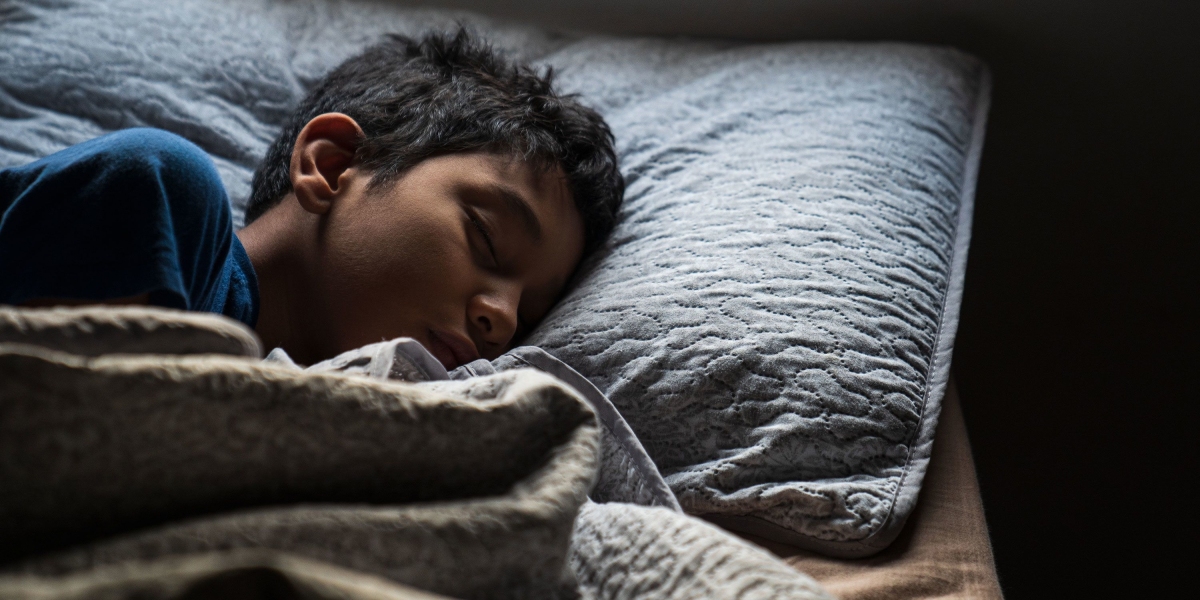If you're struggling with chronic insomnia, restless nights, or vivid nightmares as an adult, the cause may trace back further than you think—your childhood. Emotional wounds from early trauma often linger in ways we don't expect, especially when it comes to sleep. Research shows that people who experienced trauma as children are far more likely to suffer sleep disturbances later in life.
In this article, we will discuss why childhood trauma causes sleep issues in adults, the biological and psychological processes involved, and how recovering from trauma can finally give people sleep.
1. What Counts as Childhood Trauma?
Childhood trauma is painful experiences overwhelming the capacity of a child to handle them. These include:
Physical, emotional, or sexual abuse
Neglect or abandonment
Domestic violence
A parent’s death, mental illness, or substance abuse
Bullying, war, or community violence
These incidents fall under Adverse Childhood Experiences (ACEs). The more ACEs one has, the more likely they are to develop long-term mental and physical complications—such as sleep disturbances.
2. The Science: How Trauma Alters the Brain and Sleep Regulation
Trauma doesn't merely trigger a temporary stress response—it reorganizes the brain, particularly if it occurs during life's most formative moments.
a. Hyperactive Amygdala
The amygdala, or the fear center of the brain, is over-activated in trauma survivors. This results in chronic anxiety and being overly vigilant, so feeling safe enough to sleep is a challenge.
b. Impaired Prefrontal Cortex
The prefrontal cortex, or the part of the brain that handles rational thought, is underactive under trauma, resulting in ineffective emotional regulation and nocturnal racing thoughts.
c. Disrupted Circadian Rhythms
Trauma impacts the Hypothalamic-Pituitary-Adrenal (HPA) axis, which regulates your circadian rhythm and stress hormones. Ongoing cortisol secretion disrupts your sleep-wake cycle.
d. REM Sleep Disturbance
Trauma victims tend to receive less REM sleep, the phase in which emotional memory is consolidated. This sets up a cycle in which the trauma is not fully integrated and recurs in nightmares.
3. Sleep Problems That Arise from Childhood Trauma
Childhood trauma can manifest in various sleep disturbances during adulthood:
a. Chronic Insomnia
Nighttime is frequently disrupted for trauma survivors, as they are unable to fall or remain asleep. Fear of exposure and an overactive nervous system make peaceful sleep difficult.
b. Nightmares and Flashbacks
Repeat nightmares or dreams that are a representation of the trauma occur. These intense and usually frightening experiences can greatly disturb sleep.
c. Sleep Avoidance
Others acquire an aversion to sleeping itself. This is especially true for those who were abused at night or had insecure sleeping situations as a child.
d. Fragmented or Light Sleep
Although you sleep for hours, your sleep won't be restorative. You'll wake up frequently and have light sleep that leaves you exhausted throughout the day.
4. Why These Sleep Problems Can Persist for Decades
Even years after the traumatic incident, the effect on sleep can be life-long. This is why:
Unresolved emotional memory: If trauma goes unprocessed, the body remains in "fight-or-flight" mode.
No therapeutic intervention: Most adults do not know how their trauma is impacting sleep and never get trauma-specific treatment.
Negative sleep associations: With time, the brain might start linking bed with fear, racing thoughts, or worry.
5. The Psychological Toll: Anxiety, Depression, and Sleep
Trauma and sleep issues often exist in a vicious cycle. Sleep deprivation exacerbates mental health problems, while mental distress worsens sleep.
Anxiety keeps the mind alert, making it difficult to relax.
Depression can disrupt circadian rhythms and cause early-morning awakenings.
PTSD creates both psychological and physiological blocks to restful sleep.
Each of these conditions can be worsened by unresolved childhood trauma, compounding sleep issues over time.
6. The Role of ACEs in Predicting Adult Sleep Health
Studies show that individuals with 4 or more ACEs are:
2.5 times more likely to have sleep disorders
More likely to experience daytime fatigue, mental fog, and insomnia
At higher risk for chronic health conditions tied to sleep loss, including heart disease and diabetes
The takeaway: The more adverse experiences you’ve had, the more critical it becomes to address them—especially if sleep is suffering.
7. Real-Life Signs You’re Experiencing Trauma-Induced Sleep Problems
If you notice any of the following, childhood trauma may be impacting your rest:
You dread going to bed or delay sleep
You wake up in a panic or confusion
You rely on substances (alcohol, marijuana) to fall asleep
You feel unsafe or exposed while lying in bed
Your dreams often include themes of helplessness, fear, or escape
These are clear signals that emotional healing is needed before peaceful sleep can return.
8. Healing Childhood Trauma to Restore Healthy Sleep
The good news is that trauma doesn’t have to dictate your nights forever. Here’s how to start healing:
a. Trauma-Focused Therapy
EMDR (Eye Movement Desensitization and Reprocessing) helps reprocess traumatic memories so they no longer dominate your subconscious during sleep.
CBT-I (Cognitive Behavioral Therapy for Insomnia) is tailored to break negative sleep patterns caused by trauma.
b. Somatic and Holistic Approaches
Yoga, breathwork, and mindfulness calm the nervous system and make the body feel safe.
Somatic experiencing therapy works directly with physical sensations of trauma.
c. Medication (When Necessary)
Prazosin can reduce trauma-related nightmares.
Melatonin or low-dose antidepressants may help reset sleep cycles temporarily.
Always consult a medical professional before starting any treatment plan.
9. Creating a Safe Sleep Environment
Your bedroom should feel like a sanctuary. These changes can help:
Use weighted blankets to mimic a sense of safety
Install soft lighting or a night light if total darkness causes anxiety
Add white noise to block triggering external sounds
Keep your bedtime routine consistent and calming
Feeling secure is the foundation of restorative sleep for trauma survivors.
Conclusion: Reclaiming Rest Starts with Healing the Past
Sleep is not a luxury—it's a biological imperative. If trauma in childhood is waking you up, you're not alone, and you're not broken. Your body is trying to keep you safe. The best part is that with compassion, therapy, and the right techniques, you can rewire your brain for peace.






